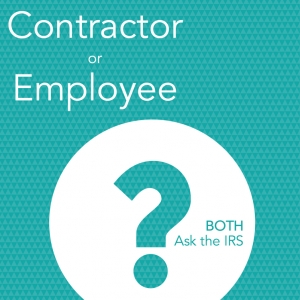 Is Your Nanny an Employee or Independent Contractor?
Is Your Nanny an Employee or Independent Contractor?
You Can Both Ask the IRS
Is that nanny you just hired an employee or independent contractor? The answer has significant tax implications for both the family and nanny, because an employer is obligated to pay employment taxes for an employee, and may also have to provide workers compensation, unemployment or disability insurance for employees as well, but does not have to pay these taxes or benefits to independent contractors.
Many nannies start work for a family with taxes the furthest thing from their mind. But then the nanny is surprised to receive a Form 1099-MISC from their family at the end of the year, instead of a Form W-2, and quickly learns from her tax advisor that she is facing significant income and self-employment taxes she never expected.
Although nannies who provide in-home care are almost always employees of the families who employ them, many families mis-characterize their domestic employees as independent contractors, either unknowingly or willfully, in order to avoid social security taxes or overtime pay rules of the federal Fair Labor Standards Act (FLSA).
Although there may be unique factual situations where classification of domestic help as an independent contractor might be justified, any family which anticipates treating their nanny or eldercare provider as an independent contractor should consult with an accountant or other tax professional to ensure they are not running afoul of federal or state employment laws. Families who mis-classify their domestic help as independent contractors risk facing a large tax bill and possibly fines if they are wrong.
While it may be tempting for a family to “save” on taxes by going this route, and although the risk of getting caught might at first seem low, families should be aware that either an employer or nanny can complete IRS Form SS-8 and simply ask the IRS for a determination of their work status for federal employment tax purposes. So who is likely to file Form SS-8? It’s not too hard to guess. Disgruntled former workers are quite likely to file Form SS-8 on their own, or upon advice of their tax preparer, to show that a family improperly shifted the burden of employment taxes to the nanny, or otherwise denied the nanny employee benefits – such as unemployment compensation insurance – by classifying her as an independent contractor.
It’s just not worth the risk!
For more information about household employment issues, or to learn how our NannyPay software has been providing families with an economical tool to comply with their household employment obligations since 1997, visit our website at www.nannypay.com, or contact us at sales@nannypay.com.







Leave A Comment
You must be logged in to post a comment.